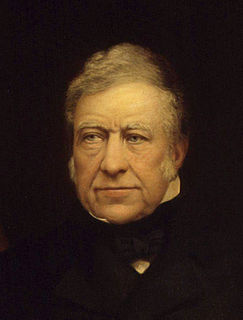A Quote by Andrew Robb
We had a level of tariffs of about five per cent. Now a lot of those will go, most of them will go over time, some of them immediately. Now that means that electronic goods and other things, white goods, coming into Australia, will be cheaper for our community. It also means in many cases that the inputs used by our high-end manufacturers to make a final product are also coming in cheaper than they otherwise would - so it makes those manufacturers more competitive.
Quote Topics
About
Also
Australia
Cases
Cent
Cheaper
Coming
Community
Competitive
Electronic
End
Final
Five
Go
Goods
Had
High
High-End
Immediately
Level
Lot
Make
Makes
Manufacturers
Many
Means
More
Most
Now
Other
Otherwise
Our
Our Community
Over
Per
Product
Some
Tariffs
Than
Them
Things
Those
Time
Used
White
Will
Would
Related Quotes
The idea that when people see prices falling they will stop buying those cheaper goods or cheaper food does not make much sense. And aiming for 2 percent inflation every year means that after a decade prices are more than 25 percent higher and the price level doubles every generation. That is not price stability, yet they call it price stability. I just do not understand central banks wanting a little inflation.
[Social legislation] raised the cost of production; and what can be more illogical than to raise the cost of production in the country and then to allow the products of other countries which are not surrounded by any similar legislation, which are free from any similar cost and expenditure freely to enter our country in competition with our own goods...If these foreign goods come in cheaper, one of two things must follow...either you will take lower wages or you will lose your work.
There are hundreds of manufacturers always producing dvices that in general do the same things. Since they have slight structural differences if you take one and fool around with it and give it a good kick it will actually do something that it wasn't designed to do. I have this relationship with my synthesizers. I've had them for so long, and I've never had them serviced, so that now practically all of their functions operate differently from what they were designed to do. They do very interesting things now, but that means nobody else can use them either.
Because once the black man becomes the political master of his own community, it means that the politicians of that community will also be black, which also means that he then will be sending black representation or representatives not only to represent him at the local level and at the state level, but, but even at the federal level.
We've lost an edge that we used to have in scientific innovation applications to goods to be sold. In many ways, that is also changing in the electronic field. Almost all of the materials that we use now are of advanced technology, I have an iPad and also an iPod, both of which are made in China. Although we have designed them here with Apple, for instance, they are manufactured overseas.
[F]or women, like tradesmen, draw in the injudicious to buy their goods by the high value they themselves set upon them.... They endeavor strongly to fix in the minds of their enamoratos their own high value, and then contrive as much as possible to make them believe that they have so many purchasers at hand that the goods--if they do not make haste--will all be gone.
I'll also make sure that America has trade relations with China that work for us. I've watched year in and year out as companies have shut down and people have lost their jobs because China has not played by the same rules, in part by holding down artificially the value of their currency. It holds down the prices of their goods. It means our goods aren't as competitive and we lose jobs. That's got to end.
Some day no one will have to work more than two days a week... The human being can consume so much and no more. When we reach the point when the world produces all the goods that it needs in two days, as it inevitably will, we must curtail our production of goods and turn our attention to the great problem of what to do with our new leisure.
It used to be, if you were a reporter, you wrote a story and then you moved on to the next one. We were used to people coming to the New York Times. We waited for them to turn on our website or to pick up our print paper and see what we have. We now understand that we have to make our stories available to our readers. A lot of people get their news from Facebook or Twitter and we want to make sure that they see some of our best stories there, too. We do this more aggressively now than we did before.
When you bring in multi-brand retail items into the country, you're not just bringing the products, but you're also harming local manufacturers. You must strengthen your manufacturing sector and put it on a level playing field with the world. Any kind of items manufactured globally, like small pens, pencils, notebooks - our manufactured goods need to be on a level playing field. Then let them come. Have a competition.
The possessions God allows us to have are intended for our use, not our enjoyment. Trying to squeeze something out of them that was never in them in the first place is a futile endeavor. A cow's udders, gently pressed, will yield sweet milk, nourishing and refreshing. Applying more and more pressure will not produce greater quantities of milk. We lose the good of material things by expecting too much from them. Those who try hardest to please themselves with earthly goods find the least satisfaction in them.
































